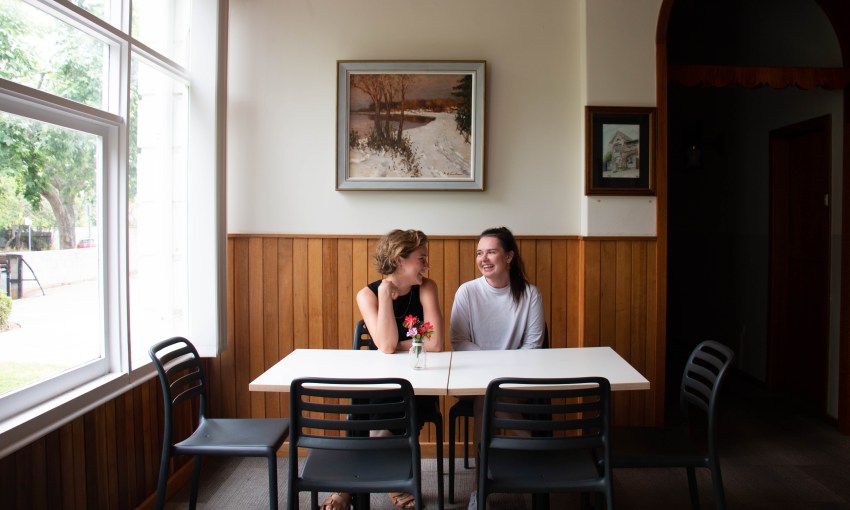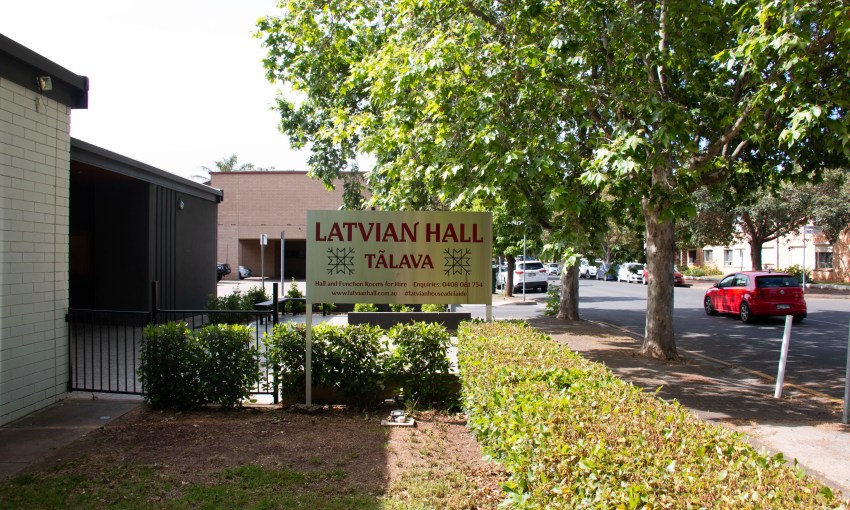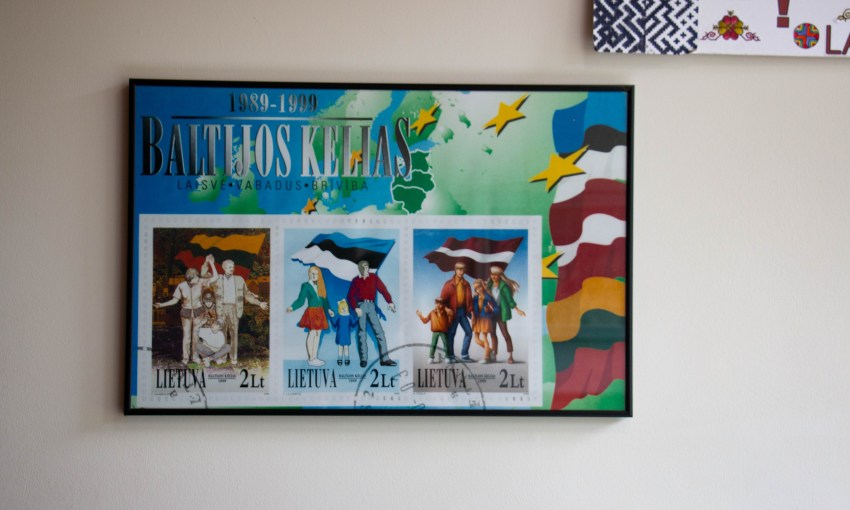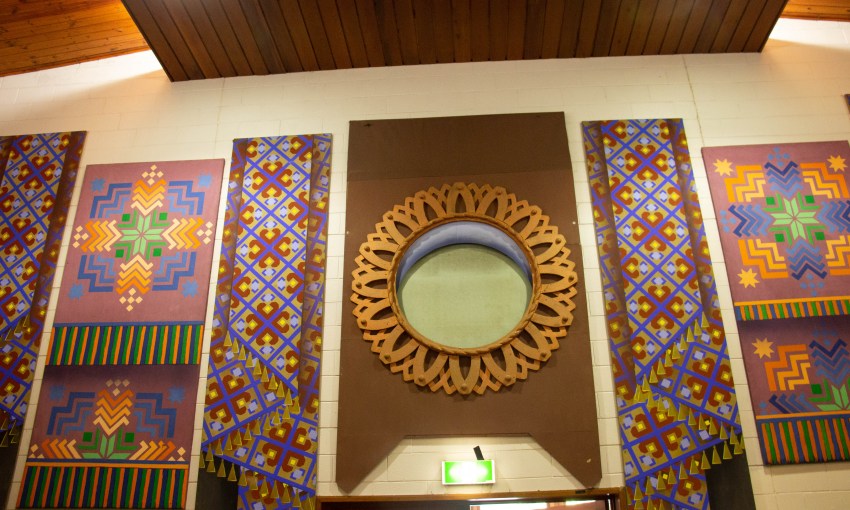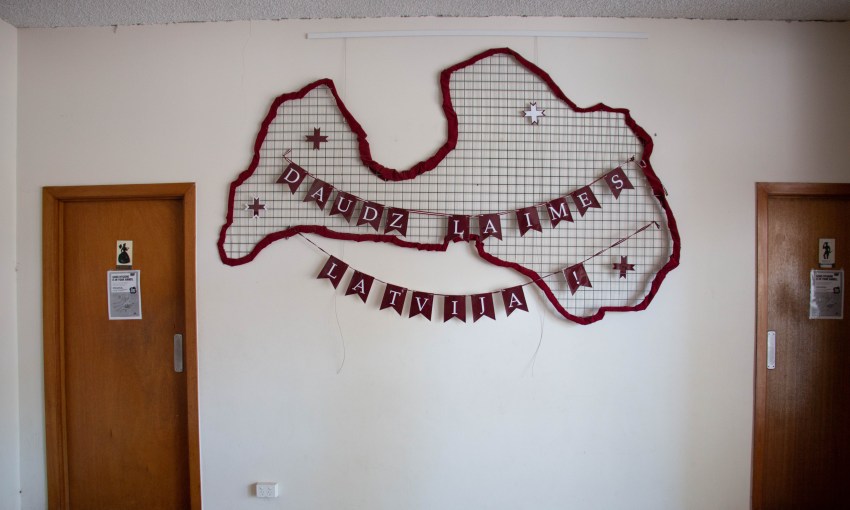Though the local Latvian youth community is small, its patriotism is large. Throughout December, Wayville's Latvian Hall will host a mini-festival of music, folk dancing, sauerkraut and sausage.
Liberation celebration: Four days of Latvian culture, choir and dance
There are seven narrow banners that hang over the large doorway of the Latvian Hall in Wayville, each displaying a multi-coloured crosshatched pattern known as raksti.
Austrālijas Latviešu Jaunatnes dienas
The 37th Australian Latvian Youth Arts Festival
28—31 December
Latvian Hall
4 Clark St, Wayville 5034
Scott Theatre
Kintore Avenue, Adelaide 5000
More info
Nearby, there’s a wooden cutout of Latvia, the forest-covered country which lies on the eastern shores of the Baltic Sea and boasts a humble population of 1.88 million.
A multi-generational Latvian community regularly gathers in this hall – which is also known as Tālava, meaning ‘the old mountain castle’ – for choir practice and social catchups.
For Latvians of generations past, patriotic displays like these would have been difficult and dangerous to orchestrate in their own country.
During repeated Soviet and Nazi German occupations and annexations during and following World War Two, and hundreds of years prior, the Latvian identity was diminished.
“Even the language was silenced,” says Liene Brūns, who describes herself as a “second- and third-generation Latvian”.
“There’s a particular dance that for a period of time wasn’t allowed to be performed because it was too political,” continues Daila Smits, a “third-generation Latvian”.
“There’s a lot of things like that – so songs that weren’t necessarily allowed to be sung in Latvia because of their connotations.”
In 2022, the 37th annual Australian Latvian Youth Arts Festival will showcase the country’s folk songs, dances, flavours and festivities. The four-day event, which is happening at the Latvian Hall and University of Adelaide’s Scott Theatre, is a celebration of independence and national identity driven by young people.
“Because of the displacement of a lot of Latvians after the war, or during the Second World War, there’s not that many people left in Latvia,” Liene says, referring to high-levels of brain drain and the falling birth rate. “We need to safeguard our culture and our language to keep Latvian culture alive.”
Speaking from the hall’s stage, her voice bouncing around the 400-capacity venue, Liene says the festival’s slate of events include a youth choral performance led by famous Latvian conductor Ints Teterovskis, a basketball tournament (honouring NBA-grade baller Kristaps Porzingis), and multiple dance-floor opportunities (both folk and contemporary varieties).
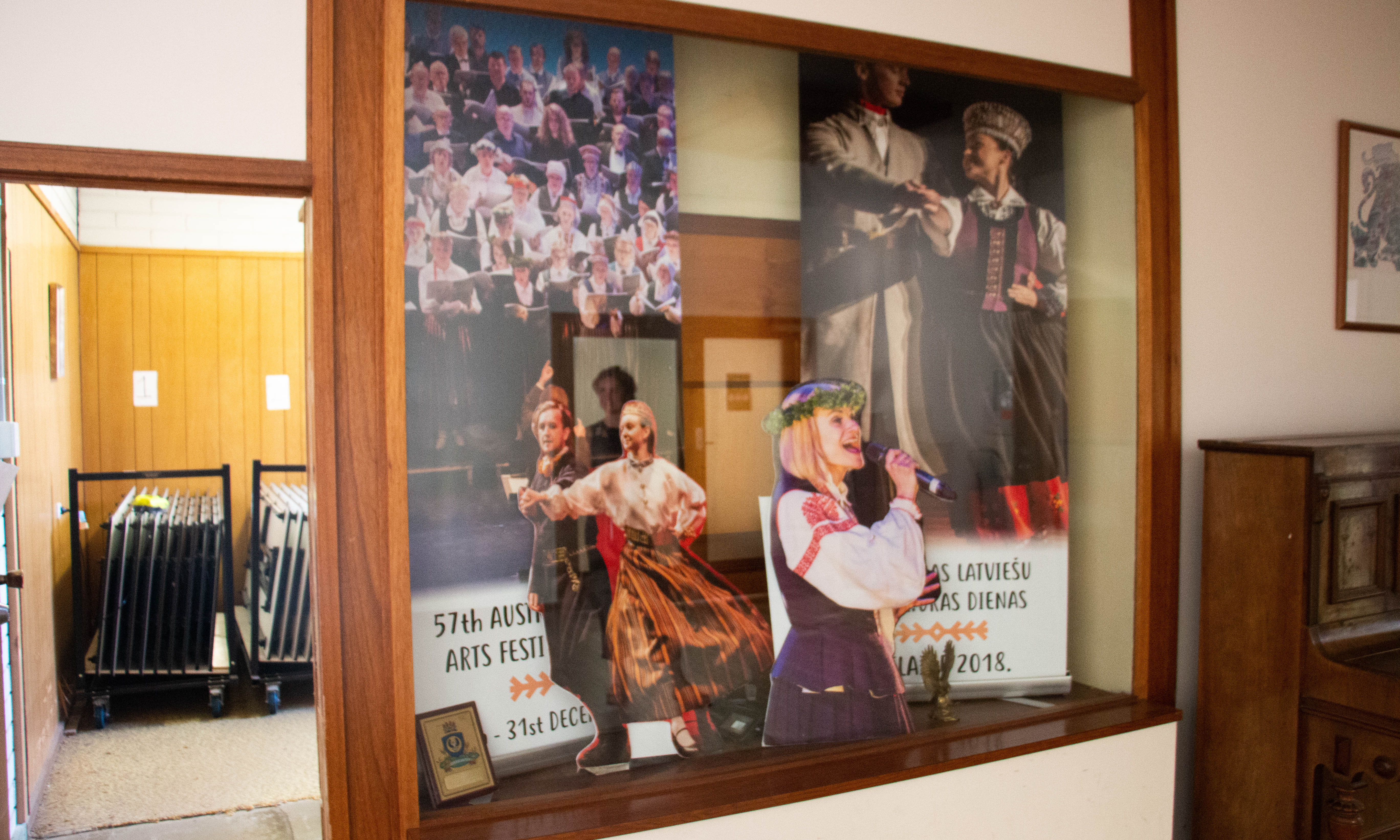
Singing like this, but IRL
“We have, after every big event, a casual fun afterparty, and one of them is a fun dance evening where we dance the traditional dances that everybody knows, and then the apkūlības,” Liene says.
“If you were looking from a bird’s eye view, you’d be seeing the beautiful folk costumes, and when the girls are spinning you can see their beautiful skirts and different formations.”
One of the dances, organised by Liene, follows a three-part structure. It starts out “darker”, representing Latvia during a time of invasion and when culture was suppressed. The middle is “lighter” and parallels the first of the National Awakenings, which was the peaceful 19th century renaissance of the country’s identity. The closing section is lively and symbolic of “abundance and freedom” and where the culture is currently, Liene says.
“The connection to our country is so strong because it’s been taken away from us so many times,” she says. “We can peacefully protest through our song, and it’s just such an insane strength.”
Although the festival’s emphasis is on artistic offerings rather than food and drink, we’re told skabi kaposti (sauerkraut and sausage) will be on the menu. Wine and a bespoke beer which takes flavour inspiration from the summer sun will also be available.
Despite not having any technical skills or traditional experience as a dancer, Daila, who remembers throwing her first Latvian youth festival at 19, is a member of the local Latvian folk dancing group Auseklītis and national group Jūrmalnieki, which will next year travel to the Latvian capital, Riga.
“I’m a third generation Latvian – speaks Latvian, goes to choir, dance. How did that happen, for country with a tiny population?” she says.
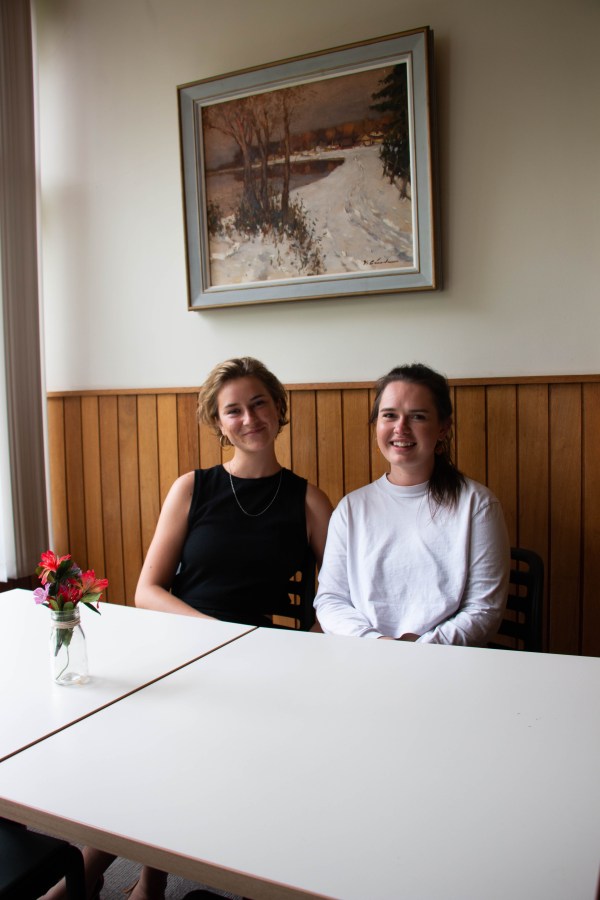
L—R: Liene Brūns and Daila Smits
The Australian Latvian Youth Arts Festival is hosted in a different city each year, and Daila describes the event as an annual pilgrimage, drawing Australians with Latvian heritage from right across the country.
“Everyone’s already booked in their accommodation the year before,” she says, laughing.
According to Museums Victoria, 19,700 Latvian refugees arrived in Australia between 1947—1952, but, according to Australia Bureau of Statistics data, the number of migrants coming to Australia from southern and eastern Europe has decreased over the last five years.
Despite dwindling numbers, and other heritage clubs such as the German Club closing their physical locations, Daila and Liene say the local Latvian community is still thriving. They attribute this to their annual festivals, cultural schooling programs and three-week summer camp intensives. And by participating in these activities, you eventually become a teacher.
Daila admits some people think her strong link to Latvian culture is “abnormal”, but she wouldn’t change a thing.
“You kind of go through this evolution in the Latvian community where you’re participating and dancing and joining in, and next thing you’re organising something,” Daila says. “And then the next thing, you’re dancing in Latvia.”



